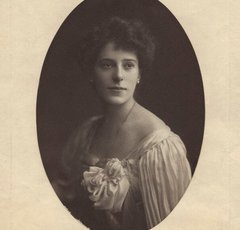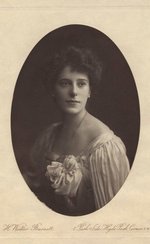Place of birth
Place of death
Tunbridge Wells
About
Rachel Sassoon Beer was born in Bombay, India, into the Jewish-Iraqi Sassoon family, a prolific and wealthy merchant family. Her father, Sassoon David Sassoon, opened a business in London in 1958, after which her family split their time between Ashley Park in Surrey and 17 Cumberland Terrace in St. Pancras. Her mother was Farha (Flora) Sassoon, also a member of the Sassoon family.
In 1887, Rachel Sassoon married Frederick Beer, whose family owned The Observer. He was also of Jewish decent, but his family had converted to Anglicanism, leading her to convert and be disowned by her conservative Jewish family. Rachel Sassoon Beer was a vocal supporter of social justice and often donated to charities. She soon began to contribute articles to The Observer and became its editor in 1891. She enjoyed writing about geopolitical affairs and union worker’s rights, while also holding imperialist views. After contracting tuberculosis, her husband became too ill to continue running The Observer, so Beer took over as its owner in 1896. Alongside The Observer, the Beers purchased The Sunday Times in 1894, and Rachel subsequently became its editor.
One of the most notable moments of her career was her involvement in the Dreyfus Affair, a scandal where French Jewish officer Alfred Dreyfus was wrongfully accused of being a German spy. A note appeared at the German embassy in 1894 that outlined a French military secret, and Dreyfus was quickly accused of writing it and imprisoned in 1895. Suspicions of a cover-up came out, and Ferdinand Esterhazy, a prolific antisemitic officer in France’s military, was accused of the crime. He was soon acquitted and fled to England. There, Beer interviewed him twice and managed to extract and publish a confession that he had in fact written the note, which contributed to Dreyfus’ eventual pardon and exoneration.
Frederick Beer’s illness and eventual death in 1901 made it difficult for Beer to continue working as a newspaper editor. Her mental health declined after his death, and she was declared insane by Dr George Savage, the same doctor that gave Virginia Woolf a similar diagnosis in 1904. Beer’s diagnosis meant she was unable to write her own will, and her brother became her administrator. She spent the rest of her life on her brother’s estate in Tunbridge Wells, where she died after a gradual health decline in 1927. The newspapers were bought by others, her contributions to charity were ceased by her family, and she was buried in an unmarked grave in unconsecrated grounds and not in the Beer’s mausoleum in Highgate Cemetery.
Rachel Sassoon Beer’s history was largely forgotten, until journalist Ann Treneman campaigned for Beer’s grave to be marked and her legacy to be properly recognised. In June 2020, The Sunday Times and The Observer contributed financially to a commemorative plaque that has been added to her grave in Tunbridge Wells.
Breger, Jennifer, ‘Rachel Sassoon Beer’, Shalvi/Hyman Encyclopaedia of Jewish Women (27 February 2009) https://jwa.org/encyclopedia/article/beer-rachel-sassoon
Koren, Yehuda and Negev, Eilat, The First Lady of Fleet Street (London: Bantam, 2012)
Martyris, Nina, ‘The First Lady of Fleet Street’, Prospect Magazine (19 June 2013)
Thorpe, Vanessa, ‘Legacy restored for Rachel Beer, Fleet Street's forgotten feminist pioneer’, The Guardian (28 June 2020)
Paul Mellon Centre for Studies in British Art, London
Banner image credit
Thurston Hopkins/Picture Post/Hulton Archives via Getty Images
Image credit
Rachel Beer (née Sassoon) by H. Walter Barnett, platinum print, 1900-1903, NPG x68859
© National Portrait Gallery, London, Creative Commons https://creativecommons.org/licenses/by-nc-nd/3.0/
Entry credit
Hannah Clark


